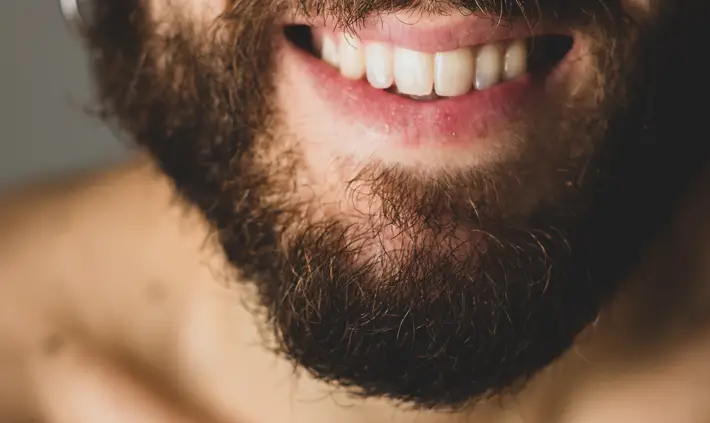What’s the Cost to Whiten Teeth at Home or at the Dentist?

There’s no doubt about it, everyone wants whiter, brighter teeth. This is supported by the fact that teeth whitening is a multi-billion dollar industry, nearing $8 billion by 2026 (Source: Arizton). You can take a walk down any oral care aisle in a department store to see evidence as well, with dozens of options for making dull teeth whiter. You’ve probably seen plenty of local dentists advertising teeth whitening service as well.
What’s the cost of all those options? We take a closer look at teeth whitening costs, starting with the cheapest. We also include some information about how effective each method may be on average. Just keep in mind that everybody is unique, so your experiences may be different based on any number of factors. And always remember to talk with your dentist first to be sure that it’s safe for you to use teeth whitening products.
Teeth-Whitening Toothpastes
In general there are two classifications of commercial teeth-whitening toothpastes. The first are the typical brands you find in just about every grocery or drug store. Next, there are luxury brands sold in department stores and online through specialty sellers.
Brand may be less important in determining effectiveness than ingredients. Consumer Reports suggests that products with carbamide peroxide tend to work better than versions that use hydrogen peroxide.
Regular Teeth-Whitening Toothpaste
Colgate, Crest and Sensodyne are some of the large, drugstore toothpaste brands that offer teeth-whitening versions. These include teeth whitening agents for daily use and are generally less expensive. You can usually save more by buying them in multi-packs. Additionally, there are natural versions, like JASON, Tom’s of Maine, and Burt’s Bees that don’t use artificial ingredients. They may also not be tested on animals and have organic ingredients. These may cost more than other brands, but are still less expensive than other teeth-whitening options.
Cost: Costs vary, but can range from $3-$10 for a 4-ounce container, or $1.50-$5 per month based on standard use per person.
Effectiveness: You can expect whitening toothpastes to lift the brightness of your teeth by one to two shades. For them to be most effective, you need to use them regularly and as directed. It is also helpful if you combine them with lifestyle changes, like avoiding food and drink that contribute to staining.
Luxury Whitening Toothpaste
Some high-end brands such as vVARDIS, contain a mix of non-peroxide whitening agents with a variety of ingredients intended to benefit your teeth. These may help protect against cavities or resist demineralization. Many brands in this category are organic and cruelty-free. You’ll also see natural ingredients, including natural flavors. While packaging may set the regular and luxury brands apart at a glance, you have to look at the label closer to really compare. For instance, vVardis uses minerals found in nature (instead of hydrogen peroxide) to lift stains. The price range of luxury brands also sets them apart, with some ultra top shelf products going for $100 a tube.
Cost: Costs vary greatly, but range from $15-$100 per 2- to 4-ounce tube
Effectiveness: Since these brands tend to use a variety of whitening agents, effectiveness can vary depending on a number of factors. You can expect to start seeing results within a few weeks; just be sure to use consistently and follow directions closely.
Teeth-Whitening Strips
Teeth-whitening strips can be more effective than toothpaste. This happens for a number of reasons, starting with the fact that they generally contain more of the whitening agent. They also generally use peroxide and are left in contact with the teeth for longer periods of time, which adds to their effectiveness. The levels of whitening agent, be it carbamide peroxide or hydrogen peroxide, are still safe to use. Many experts do recommend, however, staying away from products that use chlorine dioxide to whiten because it damages tooth enamel.
You can buy whitening strips just about anywhere you buy oral health products. Most of the time you are told to not brush before applying the stips. You simply remove the strip from the packaging and place it over your teeth. Be sure to follow the product’s instructions for placement and how long you should leave the strips in place. It could be anywhere from 5-45 minutes depending on the product and your whitening goals.
Most of the time you use whitening strips weekly, but some allow daily use. You may need to alternate these with whitening toothpaste one day, whitening strips the next.
Cost: Costs vary, but you can expect to pay over $2 per treatment to use whitening strips. This is the cost of using two strips per treatment, one for both the top and bottom.
Effectiveness: Whitening strips can be very effective, whitening your teeth over 10 levels according to some product claims. It’s important to remember though, that your results depend on a lot of factors, including your teeth’s natural color, if you use tobacco and many other factors. You can expect your results to last from a week to a month, depending on your lifestyle choices.
Teeth-Whitening Gel
If you’re not a fan of trays, there are alternatives. Some premium brands that use teeth whitening gels skip the tray and just brush the gel directly onto the teeth, typically for about 30 minutes. The active whitening ingredient in the majority of gels is carbamide peroxide or hydrogen peroxide, although some use natural minerals. Check the ingredients closely before you buy to determine which whitening agent is used.
Cost: Cost varies, but usually falls into the $25-$200 range.
Effectiveness: When used as directed, and regularly, you can expect 2-10 shades lighter. It takes two weeks to see results, and you should use the gels regularly as directed to sustain the effects.
At-Home Teeth-Whitening Kits
There are two versions of at-home teeth whitening kits, including store bought and professional versions. Professional kits are used at home, but are only available through a dentist.
In general, professional teeth whitening kits have higher concentrations of hydrogen peroxide or carbamide peroxide. You will also usually pay a premium for professional kits when compared to drugstore counterparts. Another difference is the tray used. When you get a professional whitening kit from a dentist you usually get a clear tray that is custom fit for your mouth. The drugstore versions use generic trays.
To use the kit you fill the tray with the whitening agent and press it over your top and bottom teeth. The length of time varies, but may be anywhere between 2 to 4 hours. It is not advisable to leave them on any longer than is directed because it can make your teeth sensitive.
Costs: The cost of store-bought whitening kits starts at about $100. Professional kits can range anywhere from $100-$400, according to GuardianDirect.
Effectiveness: Many factors determine how effective any teeth-whitening product will be, but kits usually have higher concentrations of whitening agents, and are in direct contact with the teeth for longer. This can make them more effective than store-bought toothpastes and strips.
Professional, In-Office Whitening
Getting your teeth whitened professionally at the dentist’s office is easily the costliest way to achieve results. In-office teeth whitening services average around $650, depending on where you live, and the cost can surpass $1,000. In-office professional whitening costs depend not only on your location, but also the materials your dentist uses and the number of treatments you need to achieve the results you want.
Most dentists use some type of peroxide bleach alongside a curing light, which activates the peroxide. They use special tools to hold your mouth open during treatment and to expose your teeth so they are dry during the process. The time of treatment can range from 1 to 2 hours. The process varies, but generally includes polishing the teeth, appling the whitening agent and then curing with the light.
This method uses higher concentration of bleach, which can cause teeth sensitivity. Some people report sensitivity during the process, along with feeling “zaps” in their teeth afterwards. Your dentist should go over the procedure, including the process and risks before you commit. You can expect to be told to avoid certain foods after the procedure, usually for 1 to 2 days.
Cost: Costs vary by location, procedure and number of treatments but can range from $650-$1,000.
Effectiveness: Professional whitening can achieve whiter teeth in the shortest amount of time because it is done by a dentist with special products and tools.










